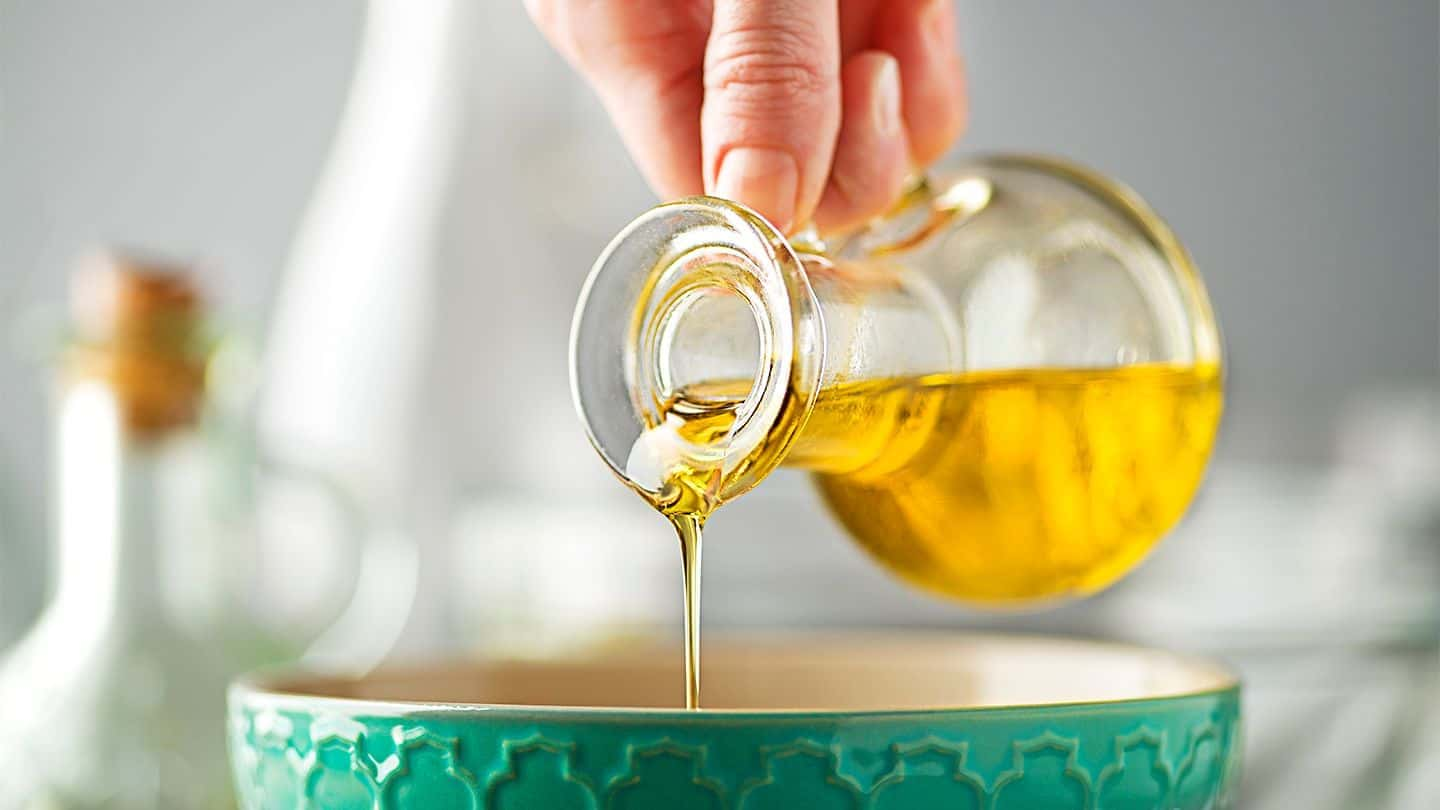Is corn oil a healthy oils?
Is corn oil a healthy oils?
In vegetable oils, corn oil is categorized as one of the richest source of phytosterols, it also contains significant amounts of vitamin E and ubiquinone (Q10) that protect it from oxidative rancidity, increasing its shelf life and making it potentially effective at lowering cholesterol levels. However, it also has some side effects such as weight gain and potential toxicity. These side effects depend heavily on how corn oil is extracted from the corn itself, the type of corn oil you use, and the way you use it.
Corn oil is a byproduct of companies that produce corn flour and corn starch. Corn germ is used to obtain oil through an extended process of expeller pressing, refinement, and steam distillation. While this creates an oil that may have a very high smoke point of 232°C, making it ideal for cooking purposes, it can also saps many of the beneficial compounds from the oil, in which case, there may be few health benefits.
CORN OIL NUTRITION FACTS
Corn oil is very high in vitamin E (14.3 mg in 100 grams of corn oil), as well as limited levels of vitamin A, xanthins and trace amounts of other antioxidant compounds.Refined corn oil is composed of 99% triacylglycerols with polyunsaturated fatty acid (PUFA) 59%, monounsaturated fatty acid 24%, and saturated fatty acid (SFA) 13%. The PUFA is linoleic acid (omega-6) primarily, with a small amount of linolenic acid (omega-3). There may be nearly 50 times more omega-6 fatty acids than omega-3 fatty acids, whereas the recommended ratio is 1:1.

POTENTIAL HEALTH BENEFITS
People primarily use corn oil as cooking oil, due to its semi-neutral flavor and cost, in comparison to other vegetable oils. However, some people might use organic corn oil in medicinal or topical applications, and even as a massage oil. The efficacy of this oil for health depends on the source and processing method of oil. Unrefined, organic oil might deliver some benefits, as explained below.
1. Reduce Inflammation
Both omega-3 and omega-6 might be known to work against inflammation when consumed in moderation in the body. This can help relieve symptoms of arthritis, as well as headaches, gastrointestinal problems and even inflammatory conditions of the skin.
2. Improve Vision Health
There may be other ingredients besides fats in corn oil, such as flavonoids and antioxidants, such as lutein, which can reduce free radical activity in the body. Specifically, lutein may be able to protect vision health and prevent the development of cataracts.
3. Prevent Chronic Diseases
Monounsaturated fats, polyunsaturated fats, flavonoids, and vitamin E may all have antioxidant properties, which can help reduce oxidative stress throughout the body. When used in moderation, this oil can help to prevent chronic disease, while also helping to make the skin look and feel younger.
4. Reduce Allergies
Some of the compounds in corn oil might have been known to reduce allergic reactivity in the body, helping to keep symptoms of asthma and rhinitis at bay. Although corn oil is rarely used as a topical oil, it might help allergic reactions on the skin when applied directly.
5. Aid to Skin Care
Whether you use corn oil directly on your skin or consume small amounts of it, the antioxidants and tocopherols in the oil might help prevent skin infections and help to relieve irritation, blemishes, eczema, and psoriasis. It may even help to reduce the appearance of wrinkles and other age spots. However, remember that this oil can be very high in fat, and should always be consumed in moderation, no matter how good it makes your skin look!
6. Rich In Phytosterols
Corn oil is full of phytosterols, which are plant-based compounds with a similar structure to the cholesterol found in animals. Phytosterols are known to help block your body’s absorption of cholesterol. Thus, they may help decrease high cholesterol levels, which are a risk factor for heart disease.
6.1 Balance cholesterol levels
Monounsaturated and polyunsaturated fats are both needed by the body, as they can help to control inflammation and excess cholesterol. However, these fats may not be balanced in most forms of corn oil, particularly in refined varieties. Therefore, this oil can reduce blood pressure and balance cholesterol in very limited quantities, so use the oil sparingly when cooking.
6.2 Anti-inflammatory ability
Phytosterols are potentially anti-inflammatory, and eating a diet rich in anti-inflammatory foods may decrease your risk of certain conditions, such as heart disease, type 2 diabetes, and some cancers. Corn oil is especially high in the phytosterol beta-sitosterol compared to some other cooking oils such as peanut oil, olive oil and canola oil. A test-tube studies have found that beta-sitosterol may have anti-tumor properties. In one study, it was able to significantly slow down the growth of lung cancer cells while having no effect on healthy lung cells. However, more human research is needed to understand the potential anticancer properties of beta-sitosterol.
6.3 Promote heart health
Because corn oil contains heart-healthy compounds, such as vitamin E, linoleic acid, and phytosterols, it may lower your risk of heart disease.
Vitamin E is a powerful antioxidant, so a diet high in this nutrient may prevent oxidative damage to your heart and blood vessels caused by excess free radicals. Additionally, in a review of studies in more than 300,000 people, swapping 5% of total calories from saturated fat to linoleic acid was associated with a 9% lower heart attack risk and a 13% lower risk of heart-related death.
Some studies also find that corn oil itself helps reduce cholesterol, especially LDL (bad) cholesterol, likely due to its phytosterol content. In a 4-week study in 25 adults, those consuming 4 tablespoons (60 ml) of corn oil daily had decreased LDL (bad) cholesterol, total cholesterol, and triglyceride levels, compared to those consuming the same amount of coconut oil. Keep in mind that some of these studies were funded by ACH Food Companies, Inc., the producer of Mazola corn oil. The results of health studies funded by food corporations are often skewed in favor of the company’s products.

DOWNSIDES OF CORN OIL
Corn oil has some significant downsides that may outweigh its potential health benefits.
1. High in omega-6 fats
Corn oil is high in linoleic acid, an omega-6 fat that has been linked to improved health in some studies.
Corn oil has an omega-6 to omega-3 fat ratio of 46:1. Omega-6 fats can be harmful if they’re consumed in excess. According to most research, your body needs to maintain an omega-6 to omega-3 ratio of about 4:1 for optimal health. In fact, most people consume these fats in a ratio of about 20:1, eating far more omega-6 fats than omega-3s. This imbalance has been linked to conditions such as obesity, impaired brain function, depression, and heart disease.
A proper balance of these fats is important, as omega-6 fats tend to be pro-inflammatory, especially when there are not enough anti-inflammatory omega-3 fats present.
Limiting corn oil and other foods high in omega-6 fats while increasing your intake of foods rich in omega-3 fats, such as fatty fish and chia seeds, may help decrease inflammation and promote overall health.
2. Highly refined
Corn oil is a highly refined product. It must go through an extensive process to be extracted from corn and made edible. This process causes corn oil to be more likely to become oxidized — meaning that at a molecular level it begins to lose electrons, becoming unstable. High levels of oxidized compounds in your body can increase your risk of certain diseases.
In fact, the beta-sitosterol in corn oil becomes oxidized as it’s heated over long periods, such as in a deep fryer. However, the antioxidant vitamin E helps slow this process down. Heating corn oil also produces the antinutrient acrylamide, a highly reactive compound that has been linked to problems with nerve, hormone, and muscle function. Acrylamide has been classified as a potential carcinogen by the International Agency for Research on Cancer (IARC).

IS CORN OIL HEALTHY?
Corn oil rich some healthy components like ubiquinone, vitamin E and phytosterols. It is popular for cooking methods like frying due to its high smoke point.
But, though its phytosterol and vitamin E contents may offer some health benefits, it’s also highly refined and high in inflammatory omega-6 fats. Thus, its potential negative health effects outweigh its benefits. That make corn oil be limited in a typical Western diet.
There are many healthier alternatives to corn oil. For example, extra virgin olive oil comes from naturally fatty olives that can simply be pressed to extract oil, requiring no chemical processing. Olive oil also contains fewer polyunsaturated omega-6 fats than corn oil and is instead rich in monounsaturated oleic acid, which may aid weight management.Unlike those of corn oil, the health benefits of olive oil have been thoroughly researched for decades. It may protect against heart disease, cancer, osteoporosis, obesity, and type 2 diabetes. For higher-heat cooking methods like frying, swap corn oil for coconut oil, a healthy saturated fat that is more stable at high temperatures and resistant to oxidation.
If you want to benefit from using corn oil, seek out varieties that have been cold-pressed, and are labelled organic or unrefined. These may have a lower smoke point, but can also possess the monounsaturated and polyunsaturated fats that provide corn oil’s various health benefits.
Compiled and written by Crocus Media
Products

Extra Virgin Coconut Oil By Cold Press
At a temperature below 25 degrees Celsius, extra virgin coconut oil begins to solidify, which is the physical effect and does not affect the product’s quality.

Coconut Butter
Coconut butter is high in lauric acid (about 50%), caprylic acid, capric acid and Medium-chain triglycerides which are considered valuable sources of energy that are quickly absorbed by the body. Fiber content reaches about 14% and completely does not contain harmful fats for the body.


.jpg)